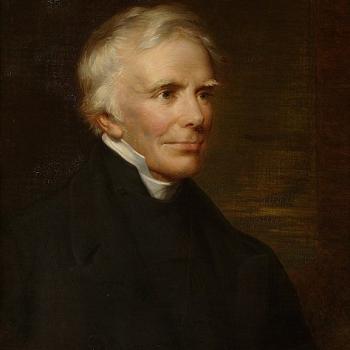Chapter 1 of my book (available for free online), Inspired!: 198 Supposed Biblical Contradictions Resolved.
*****
A common tactic of biblical skeptics is to question the veracity and historical trustworthiness of the New Testament based on alleged numerous “contradictions” therein. But most of these so-called “problem passages” can easily be shown to be non–contradictory and in fact, complementary. This is what might be described as the “1001 Bible contradictions” ploy.
Anyone can go look up the definition of “logical contradiction.” The great Greek philosopher Aristotle (384-322 B.C.) defined a contradiction as two statements that cannot both be true and cannot both be false. But how do anti-theist atheists habitually define a biblical contradiction? It seems that they regard this as any slightest shade of difference, or one passage not mentioning something or adding another detail. They are predisposed to see biblical conflicts and clashes and “contradictions” and so they “see” them.
In the desperation to find contradictions, any instance of a different report (not absolutely identical in all respects) is regarded as contradictory, when in fact this is not so at all, and obviously so, for anyone who will take a little time to reflect upon it. The following is an illustrative example of the sorts of things that atheists claim are “contradictory”:
- Joe says he saw Bill walk up to the Dairy Queen and buy an ice cream at 3:10 PM on a hot Saturday afternoon.
- Alice says she saw Ed walk up to the Dairy Queen and buy an ice cream at 4:10 PM.
- John says he saw Kathy walk up to the Dairy Queen and buy an ice cream at 4:30 PM.
- Sally says she saw Bill walk up to the Dairy Queen and buy an ice cream at about 3:15 PM, Ed buy an ice cream there at about 4:20 PM, and Kathy buy an ice cream there at about 4:45 PM.
Now, according to these conflicting and contradictory reports, how many people (at least) bought an ice cream at the Dairy Queen between 3:10 and about 4:45 PM on a hot Saturday afternoon? Was it 1, 2, 3, or 6? Actually, it’s none of the above, because (in all likelihood) many more people went there during that time to buy ice cream. They just weren’t all recorded. But skeptical hyper-critics look at the above data (let’s say they represent the four Gospels) and see a host of contradictions:
- Joe contradicts Alice as to who visited there in an hour’s time.
- Joe contradicts John as to who visited there in an hour and 20 minutes time.
- Alice contradicts John as to who visited there in 20 minute’s time.
- Joe says someone visited at 3:10, but Alice claims it was at 4:10, and John says it was at 4:30.
- Joe, Alice, and John can’t even agree on who visited the Dairy Queen in a lousy span of only 80 minutes! They are obviously completely untrustworthy! Probably two or more of them are lying.
- To top it all off, we have the utter nonsense of Sally, whose time for Bill’s arrival contradicts Joe’s report by 5 minutes!
- Sally’s time for Ed’s arrival contradicts Alice’s report by 10 minutes!!
- Sally’s time for Kathy’s arrival contradicts John’s report by 15 minutes!!!
And so on and so forth. This is the sort of incoherent reasoning which we get from so many skeptics of the Bible, who pride themselves on their reasoning abilities and logical acumen, over against us allegedly gullible, irrational orthodox Christians, who accept biblical inspiration. Many examples of this sort of nonsense can be easily located in the usual laundry lists of biblical contradictions which frequently appear in skeptical and atheist literature, often exhibiting the most elementary errors of fact or logic.
I shall now provide three brief examples of asserted contradictions that some atheists make, that are not contradictions at all:
Did the announcement of the special birth of Jesus come before his conception (Luke 1:26-31) or after (Matt.1:18-21)?
Luke details the Annunciation, which was God’s “proposition” to Mary, which she accepted (being willing to bear God in the flesh). Matthew gives an account from the perspective of Joseph. An angel tells him, “do not fear to take Mary your wife, for that which is conceived in her is of the Holy Spirit” (1:20). I don’t see how two announcements about the same event, given to the two people involved, is any sort of “contradiction.” It’s no more contradictory than a doctor informing a woman that she is pregnant, and the woman informing her husband that she is pregnant. It’s simply two announcements from two people to two people about the same thing. No one would say that both are the same (one) announcement.
Did John the Baptist know of Jesus before he baptized him (Matt.3:11-13; John 1:28-29) or know nothing of Jesus at all (Matt.11:1-3)?
Matthew 11:1-3 doesn’t say he knew “nothing” of him at all. John, while being persecuted in prison, simply wondered (it could have been for only ten minutes, for all we know) if Jesus was indeed the Messiah, and sent a message to Jesus through his disciples, to ask Jesus about that (which is quite different from knowing “nothing . . . at all” about Jesus). It was merely a temporary lack of faith, in his suffering (probably without food or sleep). It shows that John was a human being, like all of us, and like all the saints are. The Bible is realistic about human nature, and the faults and imperfections and weaknesses even of great and saintly persons.
Did Jesus see the Spirit descending at his baptism (Matt. 3:16; Mark 1:10) or did John the Baptist (John1:32)?
They both saw the same thing. So what? If my wife and I both see a meteor lighting up the night sky, that’s somehow a “contradiction”?! Remember, that’s what all of these are supposed to be, according to our never-ending critics.
Fair-minded and open-minded folks should be able to easily see through the shallowness of such absurdly supposed “proofs.” The skeptical underlying assumptions are almost always assumed as axioms (reasons for this acceptance are deemed unnecessary), and the Christian assumptions are almost always frowned upon as irrational, impossible, etc.
We often hear, for example, the weak objection that John’s Gospel excludes a lot of the important events in Jesus’ life, which are recorded in the synoptic Gospels. But it obviously had a different purpose (it was more theological in nature, rather than purely narrative). In the world of biblical hyper-criticism, however, facts such as those are of no consequence. The usual predisposition is that contradictions are involved, per the above shoddy reasoning.
Oftentimes, falsely perceived “contradictions” in Holy Scripture involve different genres in the Bible, various meanings of particular words or ideas in widely divergent contexts, translation matters, and interpretational particulars: frequently having to do with the very foreign (to our modern western sensibilities) ancient Hebrew culture and modes of thinking I know these things firsthand, because I myself have offered — through the years and in this book — what I think are good resolutions or “solutions” to hundreds of proposed biblical “contradictions.”
Other times, a purported “contradiction” may simply be a matter of manuscript errors that crept in through the years. Of course, that sort of error is only in transmission, and is not part of the original text, so it wouldn’t cast doubt on the non-contradictory nature of the original transcripts of the Bible (if indeed we can plausibly speculate that it was merely an innocent copyist’s error).
Sometimes, “contradictions” are alleged based on various arguments from plausibility. A common atheist tactic in discussions on biblical texts is to claim that all (or nearly all) Christian explanations are “implausible” or “special pleading” and suchlike. They very often assume what they need to prove, in thinking that all these texts are self-evident before we even get to closely examining them in context, checking the Greek and relevant cross-references, etc. But that issue is a very complex one. What different people find plausible or implausible depends on many factors, including various premises that each hold.
It’s just as wrong and illogical for the atheist to use “implausible” as the knee-jerk reaction to everything a Christian argues about texts, as it is for the Christian to throw out truly implausible or unlikely replies. Both things are extremes. Neither side can simply blurt out “implausible!” or “eisegesis!” without getting down to brass tacks and actually grappling with the text and its interpretation in a serious way. We can’t — on either side — simply do a meta-analysis and speak about replies rather than directly engage them. To prove that any explanation is “implausible” requires more than merely asserting that is is. Bald assertion is not argument. It’s proclamation.
I’ve been saying for years that atheists and other biblical skeptics approach the Bible like a butcher approaches a hog. Most — especially atheists, and particularly former Christian atheists — couldn’t care less about actually resolving these alleged Bible difficulties, or giving the Bible a fair shake. The “anti-theist” sub-group among atheists only wants to tear Holy Scripture and Christianity down. It has little or no interest in defenses of an infallible, inspired Bible or discussions with those who submit them.
I have much firsthand experience of these tendencies, having engaged in several thousand attempted dialogues in atheist online forums (several of the most prominent and popular online), and sometimes in atheist groups in person.
Biblical skeptics, who see “contradictions” everywhere, and who never seem to have “met” a proposed one that they didn’t like, are at the same time usually 1) abominably ignorant of the Bible’s contents and interpretation, and 2) seemingly unfamiliar with classical logic or, say, a textbook of logic ( and in case anyone is wondering, I did take course on logic in college).
Few things bolster my Christian faith more than dealing with these alleged “biblical contradictions”: because the arguments are almost always so shallow and even laughable, that we see the Christian faith as far more rational and sensible. Observing (while I am making my own arguments) the Bible being able to withstand all attacks is incredibly, joyfully faith-boosting. It’s the unique blessing we apologists receive for our efforts.
Because Bible skeptics have difficulty in proving actual biblical contradictions (by the dictionary definition of the word), what they do is collect a multitude of pseudo-contradictions which are not logical contradictions at all, and then rant and carry on that there are just so “many“!!! What they neglect to see is that a pack of a hundred lies is no more impressive or compelling than one lie. A falsehood is a falsehood. If a hundred proposed biblical contradictions are all refuted and shown to not be so, then the ones who assert them have not gained any ground at all. They haven’t proven their case one iota, until they prove real contradiction.
We Christians (and apologist types like myself) are obviously defending the Bible and Christianity and have our bias, just as the Bible skeptic also is biased in the other direction. But we need not necessarily assume anything (by way of theology) in order to demonstrate that an alleged biblical contradiction is not present. That’s simply a matter of classical logic and reason.
One need not even believe in “biblical notion X” in order to argue and assert that opponent of the Bible A has failed to establish internal inconsistencies and contradictions in the biblical account involving biblical notion X. One simply has to show how they have not proven that a contradiction is present in a given biblical text. I’ve done this myself innumerable times through the years.
We are applying the accepted secular definition of “contradiction”: which is part of logic. Too many atheists want to act as if the definition of “contradiction” is some mysterious, controversial thing, that Christians spend hours and hours “haggling” over. It’s not. It’s very straightforward and it’s not rocket science.
If something isn’t contradictory, it’s not a “Bible problem” in the first place. But atheists have at their disposal catalogues of hundreds of “Bible problems” — so that they can pretend as if they have an impressive, insurmountable overall case. This has been standard, stock, playbook atheist and Bible skeptic tactics for hundreds of years. They keep doing it because it works for those who are unfamiliar with critical thinking and logic (and the Bible).
Atheists and other biblical skeptics can reel off 179 alleged / claimed contradictions (as all Bible skeptics love to do: the mere “appearance of strength”). But this proves absolutely nothing because any chain is only as good as the individual links. Each one has to be proven: not merely asserted, as if they are self-evidently some kind of insuperable “difficulty.” One hundred bad, fallacious arguments prove exactly nothing (except that the one proposing them is a lousy arguer and very poor at proving his or her opinions).
One online atheist, to whom I have offered rebuttals many times, started out one of his articles by writing, “How can Christians maintain their belief when the Bible is full of contradictions?” Imagine if I said that about atheism?: “How can atheists maintain their belief when atheism is full of self-contradictions?” I do actually believe that, and think I have demonstrated it many times, but simply saying it [to an atheist] is no argument in and of itself. It has to be proven. The “proof’s in the pudding.” Any serious argument will be able to be defended against criticism.
Closely related to this issue of alleged biblical contradictions is the matter of “Bible difficulties.” We should actually fully expect many “Bible difficulties” to arise from the study of the Bible, for the following reasons, as a bare minimum:
- The Bible is a very lengthy, multi-faceted book by many authors, from long ago, with many literary genres (and in three languages), and cultural assumptions that are foreign to us. All complex documents have to be interpreted. When human beings start reading them, they start to disagree, so that there needs to be some sort of authoritative guide. In law, that is the Supreme Court of any given jurisdiction. The U.S. Constitution might be regarded as true and wonderful and sufficient, etc. But the fact remains that this abstract belief only lasts undisturbed as long as the first instance of case law in which two parties claim divergent interpretations of the Constitution. The Bible itself asserts that authoritative interpretation is needed to fully, properly understand its teachings:
Nehemiah 8:1-2, 7-8 And all the people gathered . . . and they told Ezra the scribe to bring the book of the law of Moses which the Lord had given to Israel. And Ezra the priest brought the law before the assembly, both men and women and all who could hear with understanding, . . . the Levites, helped the people to understand the law, while the people remained in their places. And they read from the book, from the law of God, clearly; and they gave the sense, so that the people understood the reading.
Mark 4:33-34 With many such parables he spoke the word to them, as they were able to hear it; he did not speak to them without a parable, but privately to his own disciples he explained everything.
Moses was told to teach the Hebrews the statutes and the decisions, not just read them to the people (Exod. 18:20). The Levitical priests interpreted the biblical injunctions (Deut. 17:11). Ezra, a priest and a scribe, taught the Jewish Law to Israel, and his authority was binding (Ezra 7:6, 10, 25-26).
-
- The Bible purports to be revelation from an infinitely intelligent God. Thus (even though God simplifies it as much as possible), for us to think that it is an easy thing to immediately grasp and figure out, and would not have any number of “difficulties” for mere human beings to work through, is naive. The Bible itself teaches that authoritative teachers are necessary to properly understand it.
- All grand “theories” have components (“anomalies” / “difficulties”) that need to be worked out and explained. For example, scientific theories do not purport to perfectly explain everything. They often have large “mysterious” areas that have to be resolved.
Think of, for example, the “missing links” in evolution. That didn’t stop people from believing in it. Folks believed in gradual Darwinian evolution even though prominent paleontologist and philosopher of science Stephen Jay Gould famously noted that “gradualism was never read from the rocks.” Even Einstein’s theories weren’t totally confirmed by scientific experiment at first (later they were). That a book like the Bible would have “difficulties” to work through should be perfectly obvious and unsurprising to all.
-
- Christianity is not a simpleton’s religion. It can be grasped in its basics by the simple and less educated; the masses, but it is very deep the more it is studied and understood. Thus, we would expect the Bible not to be altogether simple. It has complexities, but we can better understand them through human study, just like anything else.
Having written this initial outline and description of my fundamental premises and presuppositions, and some of the common issues involved, I shall now proceed to an examination of 198 instances of “alleged biblical contradictions.”
***
*
*****
*
Photo Credit: Refused (7-30-23) [Deviant Art / CC BY-NC-SA 3.0 DEED; Attribution-NonCommercial-ShareAlike 3.0 Unported]
Summary: Portion of Dave Armstrong’s book, “Inspired!”: in which he examines 198 examples of alleged biblical contradictions & disproves all of these patently false claims.














